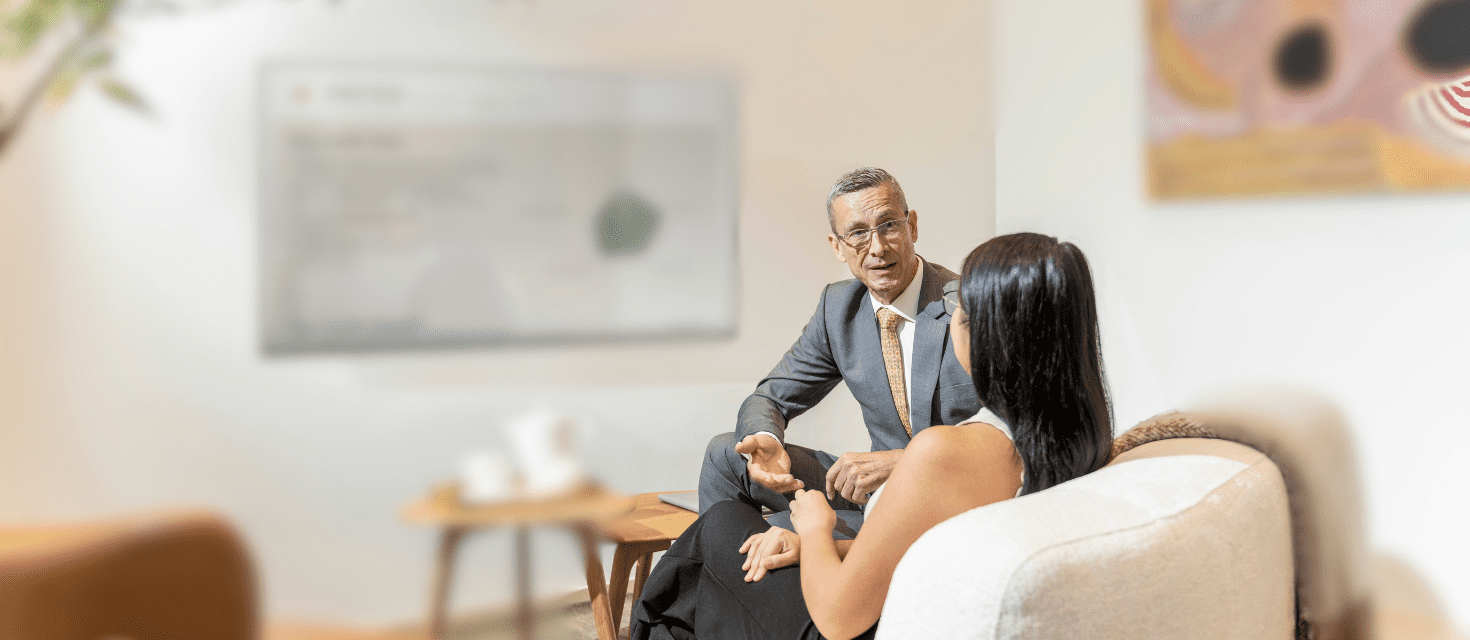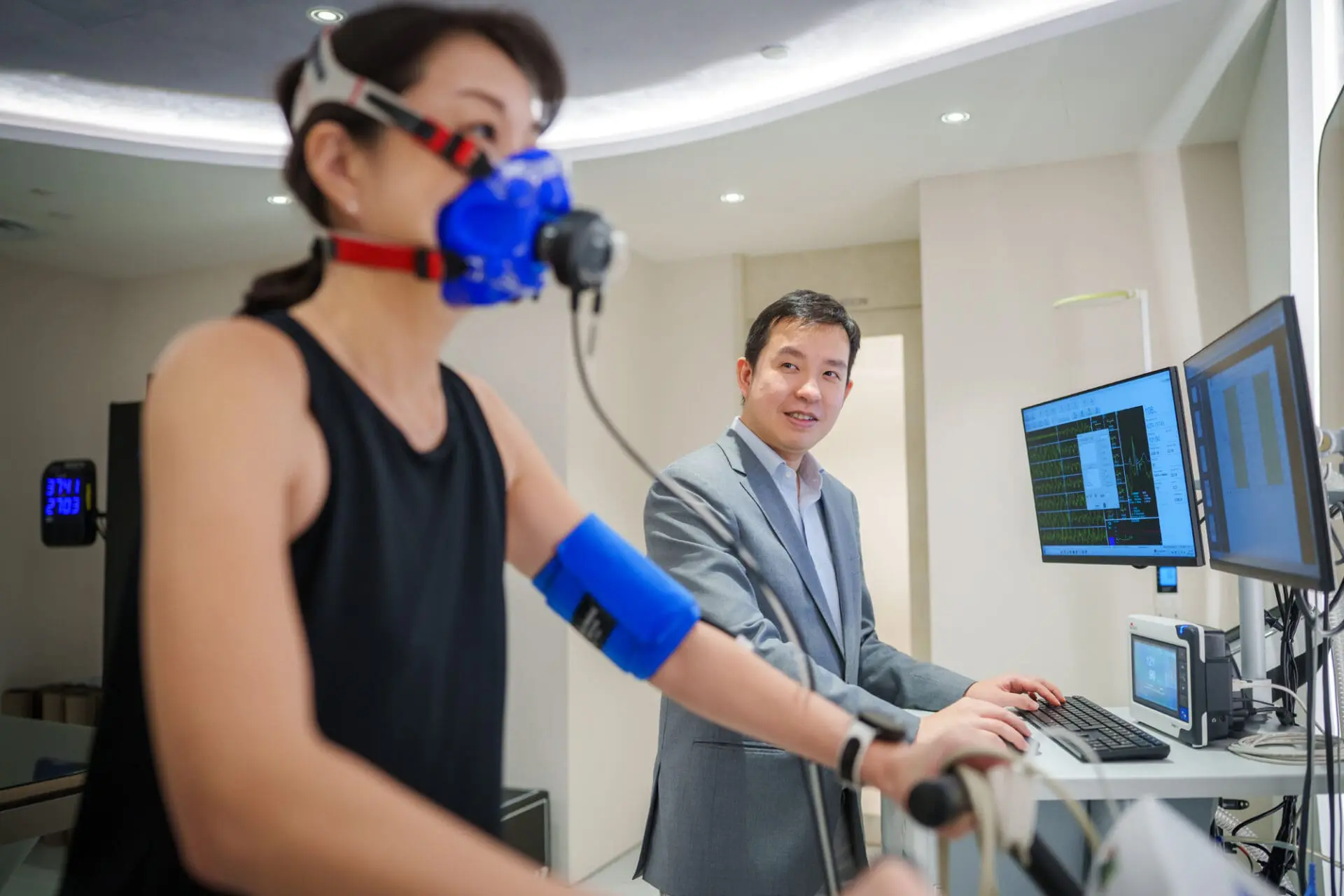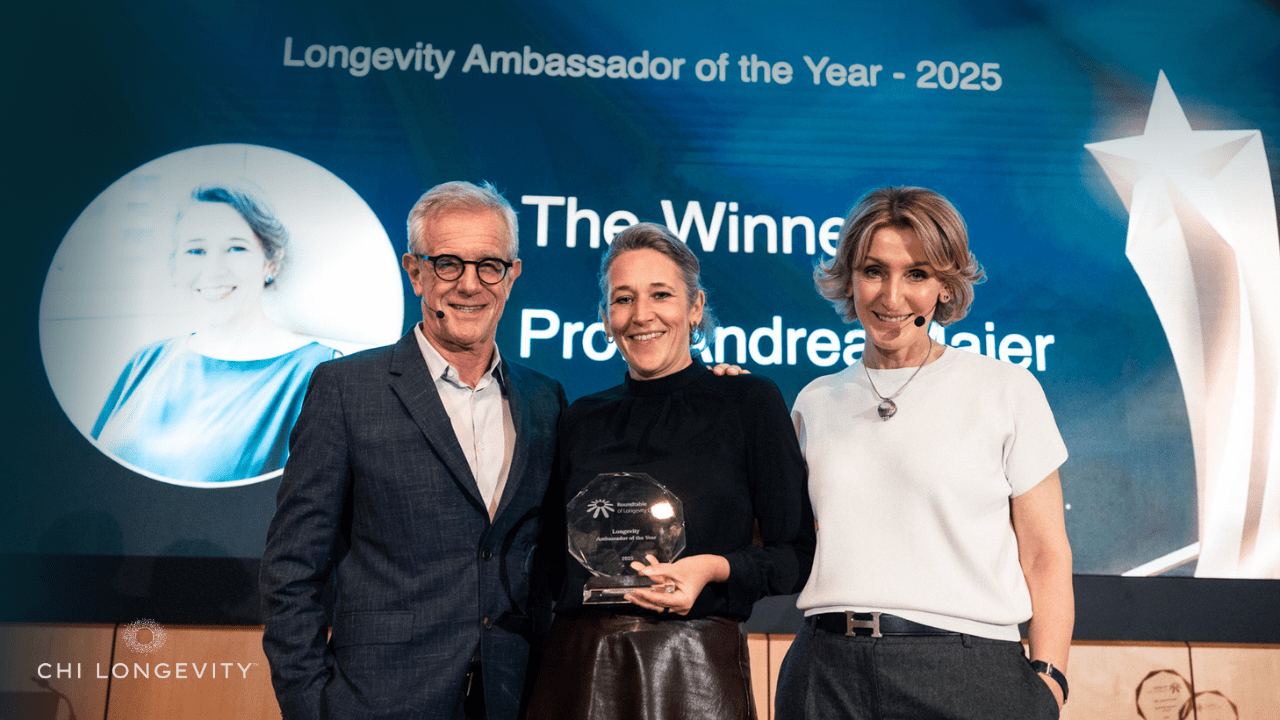You are the Chief Clinical Officer at Chi Longevity – what does that entail?
My role is to oversee the client’s journey from start to finish. That includes everything from the client’s first questions to the multidisciplinary team meeting that determines the interventions required for the client to achieve their goals. I then liaise with the clients and their health coaches during the intervention phase, to ensure everybody is on track and on the same page on the health optimisation journey.
How did you get into longevity medicine? Can you tell us a bit about your background?
My first ‘taste’ of longevity is a personal one. I was yet to be married, had no children, and getting close to 40 years old. My father told me, “You should be thinking about family and children soon because you’ll be an old dad. You’re going to be tired and it will be difficult.” I remember thinking, “That’s not going to be me”. From that moment onward I was determined to stay switched on, strong and fit, for both myself and for my future family.
Since then, I became that ‘old dad’, and I built my life around optimising my health, staying fit and clean living. I transitioned from academia to becoming a private practice consultant dietitian. However, it didn’t take long before I began holding people accountable for more than their eating habits and behaviours. Alcohol consumption, sleep, exercise…these were key frameworks for better health and longevity! I underwent more study in anti-ageing and regenerative medicine and became board-certified in the USA and Australia long before longevity was even on the lips of the mainstream. Healthy longevity has been an integral part of me for a long time and it’s fortuitous that the world caught up with where my true interests lie!
How does healthcare differ in 2024 from when you first started working in the field?
When I first started, there were only a few healthy longevity practitioners and the field back then was born out of aesthetic appearance – external to internal. For example, for men, testosterone replacement was considered anti-ageing, as it helped you to build muscle more easily as you get older. In these early days, the field wasn’t addressing longevity per se, but rather the factors that lead you to look and feel better. There was still a significant aesthetic component to it.
It’s only recently that we have started to ‘get under the hood’ to think about healthy longevity from the inside out. These days we’re digging deep into the internal and then thinking outward.
Which wearable technology do you think is the most useful when assessing a client’s health? Do you personally use wearables to track your health and performance?
The best wearable is the one that resonates with you, is ‘sticky’, and makes you take action. For each person, that could be a different wearable, whether it’s looking at glucose control, measuring heart rate variability, or sleep patterns. I’ve worn them all! However, if they are on the shelf or by my bedside table, then they weren’t the ones for me. Some have passed the test of time and I’m still wearing them.
What’s great about wearables is that you observe the trajectories that you are taking in real-time, and not just seeing snap-shots. They’re a valuable tool for those that are interested in tracking over time. Wearables are not for everybody, some people find that using them creates anxiety or disrupts them from what they are trying to achieve.
Do you believe that people can change their health fate? Is it possible to reverse biological ageing?
Of course, we can change our health fate! I believe that at any age we can change the trajectory of our health. We all have different circumstances that life throws at us, whether it be an old injury, ongoing health issues or other challenges. They may have impacted our health to date and may continue to do so. However, no matter what our current circumstances may be, there are actions we can take to move the needle in the right direction. If that allows us to become healthier, then it will improve our health span and may reduce the rate of our biological ageing.
How does caloric restriction impact our bodies? Do you recommend fasting to boost healthy longevity?
It is well-established that caloric restriction can have a profound impact on the ageing process. It’s fundamental to healthy longevity, but there’s a lot more to it. Not every person is going to be suited to caloric restriction. For some, it may be a valuable tool but the challenge is to find a sustainable way to go about it. Caloric reduction without malnutrition is key. For others, it may not be suitable. If you are already underweight or under-muscled for example, then caloric restriction may not be appropriate at all. It’s important to match diagnostics with interventions.
How important is sleep for our well-being?
I believe that sleep underpins everything. If your sleep is compromised, your eating patterns, exercise, mood… all of these things are going to be impacted. We also know that sleep deprivation contributes to many chronic health conditions. Furthermore, if you are compromised on sleep, you don’t live as long. In the toolkit for healthy longevity, sleep is important. It’s one of the foundations of the behavioural changes that can have an impact on our health fate.
How are you dealing with the speed of innovation with genetic sciences, diagnostics etc? It must be a lot to process!
Chi Longevity has a strong interest in keeping abreast of academia and longevity research. We know what is going on because we have ties to a robust community of researchers and scientists working in this exciting field. We see the evidence and the science, and we’re getting direct feedback on what’s happening in animal and human trials concerning ageing and biological ageing.
What is the role of mitochondrial health and also the microbiome in healthy longevity?
In 2013 there was a ground-breaking publication that first introduced nine hallmarks of ageing. It was a summary of the proposed principal mechanisms of the ageing process, and how they interact with each other. As part of this paper, we saw the concept of mitochondrial decline and how it’s intricately involved in the ageing process.
What began as nine, has now expanded to twelve hallmarks, as of the latest 2023 study. One of the more recent additions has been the microbiome. Both are significant players in the mechanisms of ageing and have an impact in their own right as well as interacting with many of the other hallmarks. No doubt, more hallmarks may be introduced and perhaps some will fall away.
How personalised is the Chi Longevity approach to healthcare?
It’s a highly personalised approach. Via a range of diagnostics tests and sample collection, we look at a vast number of data points for each person. In the case of some of those data points, AI also plays a role. We bring this information to a multidisciplinary team meeting where we combine the knowledge base of our team plus all the data collected, to create individualised interventions and solutions for each person. It’s high touch and very much bespoke.
Can you give us an example of someone whose life has been affected by going through the healthy longevity programme?
We had a client who, due to life circumstances, spent a period of their life very unwell. In this case, it included time of significant bed rest, which we know ages people quite considerably. They were concerned that they’d lost time and had aged prematurely. When we looked at their biological clocks, it confirmed that their rate of ageing had indeed been compromised. Fortunately, the interventions we designed and the subsequent retesting 6 months later demonstrated a positive impact on these clocks, and on other organs and systems. We are starting to see the fruits of our labour – our interventions may impact biological ageing!
Do you practise what you preach? What actions do you take in your personal life to maximise your health and longevity?
I do practice what I preach. I feel that it’s important. If I’m going to be an advocate for healthy longevity medicine, I should at least ‘walk the walk’ most of the time. I exercise daily but my perspective is now through the lens of healthy longevity. I try my best to not compromise on sleep, I know my blood markers inside and out, and I work hard at keeping them optimised. I shop weekly at the local wet market and most of my food is home-prepared and minimally processed. It may appear like a lot of work but the pay-off is worth it. I am rarely unwell and I can still hold my own in my muay thai kickboxing sessions!
Which repurposed drugs or supplements do Chi Longevity prescribe and why?
Repurposed drugs are prescribed drugs that may, in certain circumstances and certain individuals, have a role to play in healthy longevity. For example, some insulin-sensitising medications that were originally designed for people with diabetes might also have a cross purpose for longevity. Large-scale clinical trials are underway to investigate this further.
Other compounds that are not prescribed may also play a similar geroprotective role. They are different from the standard nutritional supplements that are taken to address deficiencies. Examples include nicotinamide mononucleotide (NMN) and calcium alpha ketoglutarate (AKG). There are hundreds of these but for most, the evidence for their use has yet to be substantiated. It is a minefield, but at Chi Longevity we rely on the evidence to make informed decisions and advice. We have a good understanding of the trials that have been performed, we stay on top of the research, and we draw on that evidence for each individualised client. We essentially medicalise the use of these geroprotective molecules because otherwise, the consumer can be very vulnerable.
How useful is Chi Longevity’s proprietary online portal when reviewing clients’ medical data?
It’s a very valuable resource! We wanted to make our health data and interventions easily digestible and user-friendly. The way the portal is presented is like having a digital health avatar. You see all your ongoing data presented in a clear visual manner, linked to the relevant organ and physiological systems.
The best thing is that the portal acts as your digital hub over time so you can see how you’re trending in key biomarkers of healthy longevity.
What developments are you excited about in the future for longevity medicine?
I think we still have a long way to go in finding out more about our unique DNA fingerprint and how it relates to our health and longevity. I’m interested to see how the gene/environment impacts health outcomes and how we will be able to use that in personalised medicine as we move forward. We also have very little idea about how AI is going to impact personalised medicine and what this might do for our collective health trajectories.


